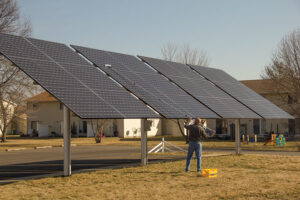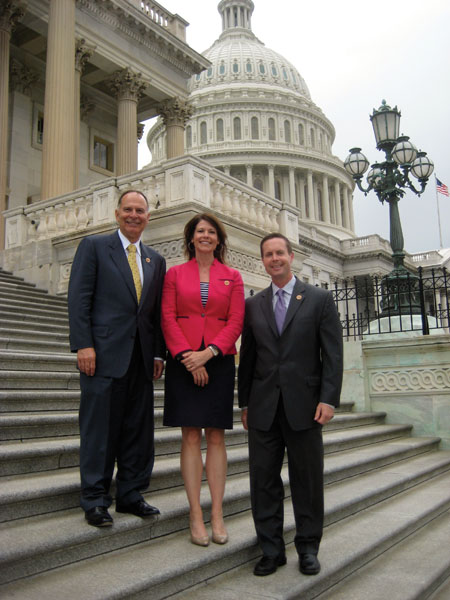
In June President Obama announced a broad new federal mandate to reduce greenhouse gas emissions from electric power plants. The President will instruct federal regulators to apply the Clean Air Act to carbon dioxide issued from power plants. Mark Irwin, Director of the Center for Clean Coal Technology Research, Purdue University, says the President’s plan has the potential to increase rates by 41 percent over the next eight years. Rural and low-income Americans already spend disproportionately more on energy than others. For example, households with incomes between $10,000 and $30,000 already spend 24 percent of their income on energy consumption according to America’s Power.
“Electric cooperatives oppose President Obama’s proposal to use the Clean Air Act to reduce carbon dioxide emissions from power plants,” said Jo Ann Emerson, CEO of the National Rural Electric Cooperative Association (NRECA). “America’s rural communities depend on coal-fired generation for affordable electric power and would be disproportionately penalized. The President’s proposal could be, in effect, a regressive new climate tax on America’s most economically vulnerable citizens.”
Electric co-ops are already working to diversify energy portfolios with renewable energy sources like the Prairie Trail Wind Farm. Energy diversification and innovations can lead to lower costs. Co-ops are also at the forefront of energy efficiency initiatives, actively installing smart grid technology and adding the latest in efficient generation resources when needed to ensure long-term rate stability.
“Not-for-profit, consumer-owned electric cooperatives are about keeping electric bills affordable and stable, and finding ways to improve our members’ quality of life,” said Duane Noland, President/CEO of the Association of Illinois Electric Cooperatives. “The electric co-ops of Illinois agree with some of the major points in the President’s plan that address energy efficiency improvements, modernizing our electric grid, setting higher goals for renewable energy and investing in development of new energy solutions. These proposals could help reduce energy costs. We respectfully, but strongly, disagree with the portions of his plan that will raise our members’ rates. We look forward to working with our nation’s leaders to make sure that keeping electric rates affordable for consumers is a high priority as we work to improve our nation’s energy policy.”








